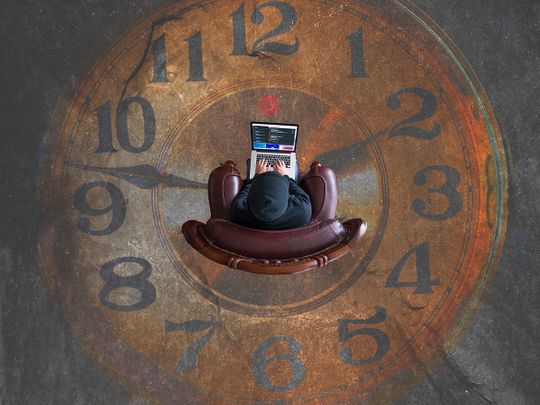
There’s a clock ticking in our bodies. Are you aware of its pace and rhythm?
Click start to play today’s Spell It, and create the word ‘circadian’ with the letters provided.
If all our body’s processes – molecular, cellular, physiological – work together in sync, like an orchestra, then our circadian clock is the conductor. It is responsible for ensuring our sleep, metabolism, body temperature and other aspects are properly regulated at the right time of the day. This is why it’s so important to listen to our body clock and ensure we’re treating it right.
Here are three facts about the body’s circadian rhythm that are worth knowing:
1. People have different clocks
In general, most people follow a similar timeframe: wake up in the morning and sleep at night. It’s why those who work the night shift face certain health issues – it goes against their natural body clock. For instance, a 2013 study published in the UK-based journal Occupational and Environmental Medicine found that breast cancer among women who worked night shifts for over 30 years was double that of other women. A variation in our body clocks also explains why some people are early birds, and others are night owls. Age also plays a part. As people get older, their rhythms start to shift, so that they prefer sleeping earlier in the evening, and waking up earlier in the day.
2. Women are more likely to be early risers
A September 2013 study published in the journal Proceedings of the National Academy of Sciences of the United States of America, found that women’s internal clocks were six minutes faster than those of men. It’s why they’re more likely to be early birds. Researchers speculate it could have to do with the fact that many women don’t get quality sleep, since they end up doing housework or other chores in the evening, instead of turning in early.
3. Light plays a huge role
You’ve probably heard that the glow of the smartphone screen in the dark is terrible for sleep. Now, you’ll know exactly why. Light can set off a whole host of reactions in our brain. As soon as light enters the eye, signals are sent to the hypothalamus region in the brain, which plays a major role in managing our internal clock. Light – even the glow from a smartphone screen – sends out the confusing message that it’s daytime, and tricks the body into thinking it should be alert and active, rather than asleep. It throws off the body’s sleep, mood, and metabolism. So, it’s no wonder that scrolling on smartphones keeps us up longer at night.
Do you take precautions to keep your internal clock running smoothly, especially at night? Play today’s Spell It and tell us at games@gulfnews.com.









